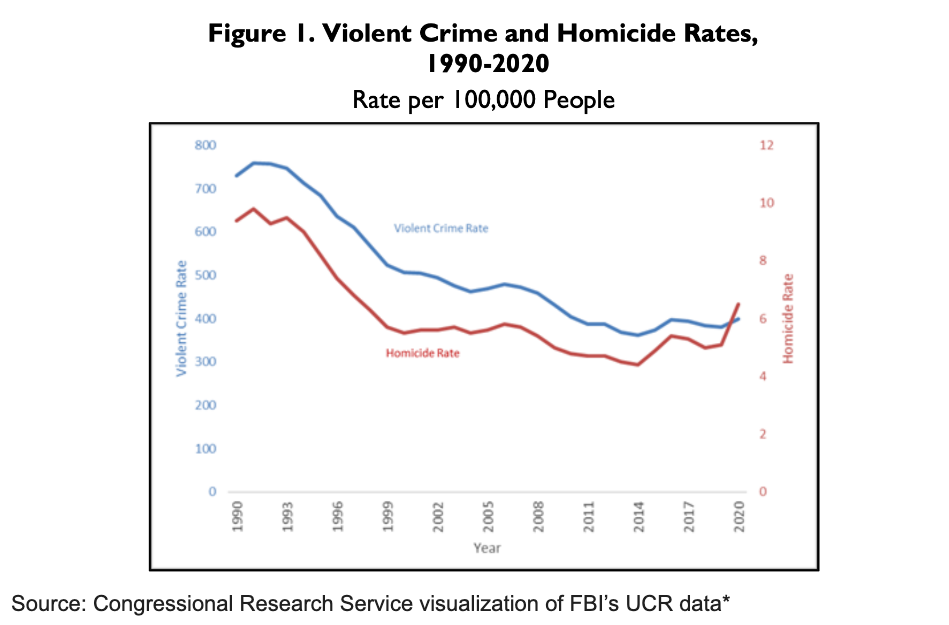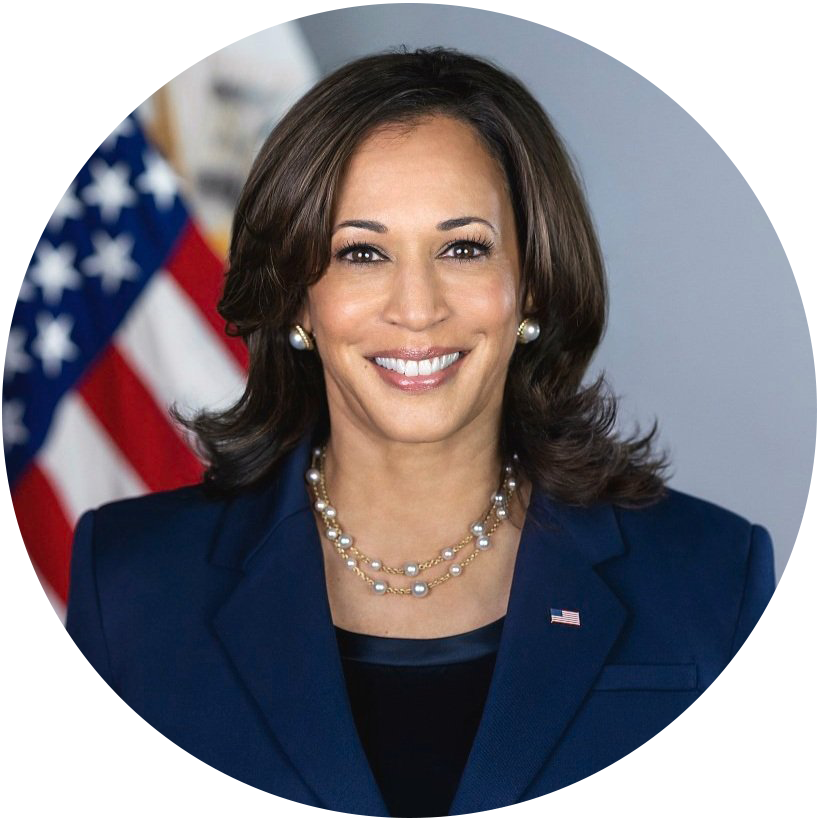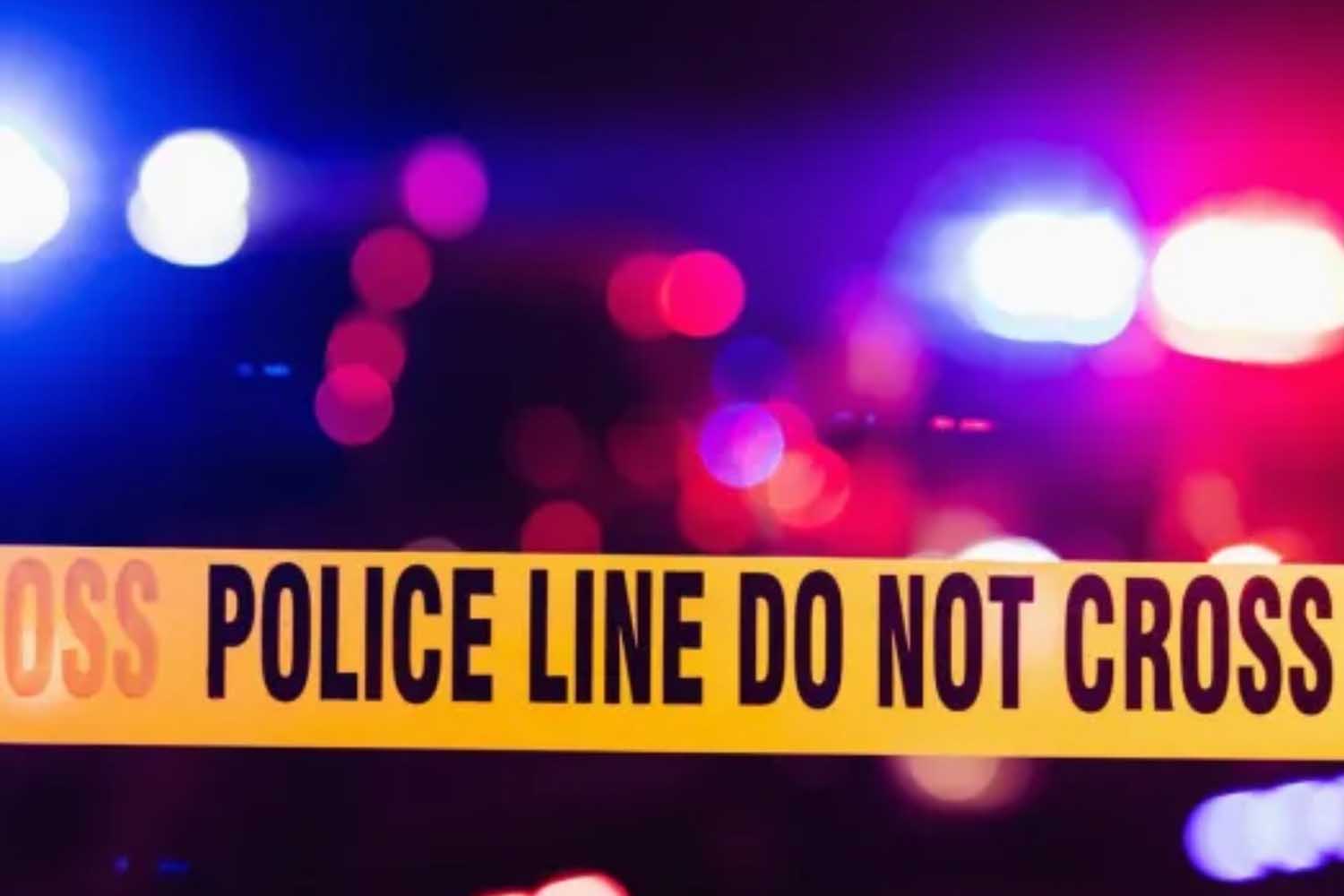Spikes in violent crime in recent years have kept the issue of crime and how to handle it at the forefront of American politics.
The FBI’s Uniform Crime Reporting (UCR) Program* includes 4 offenses: murder and nonnegligent manslaughter, rape, robbery, and aggravated assault––offenses that involve force or threat of force. After historic lows in the 2010s, violent crime increased sharply in 2020, often attributed to pandemic-related economic stress and isolation, as well as social unrest.

Both Republicans and Democrats say they want to reduce crime but disagree on how to best accomplish that.
*Note: The FBI overhauled its database in 2021, which impacted its historical charts and caused many major cities to not submit data in time for 2022’s report. The FBI says that data has since been added, and all cities with 1M+ people are reporting data to its new system. Recent reports show violent crime continued to rise from 2020-2022 but declined in 2023.
Both Sides
Democrats generally advocate for a comprehensive overhaul of the criminal justice system, attributing violent crime primarily to underlying causes such as poverty, lack of education, and mental health issues. They emphasize the need to reduce mass incarceration and address police brutality, calling it a “stain on the soul of our nation.” Democrats often advocate for enhancing social services and addressing inequalities, which they believe contribute to criminal behavior, as part of a comprehensive approach to crime prevention.
Republicans generally advocate for “tough on crime” policies, attributing violent crime primarily to the criminals’ poor choices rather than societal or systemic causes. They argue that firm, swift punishments deter crime, and many support policies like “broken windows policing” (targeting minor crimes to prevent larger ones) to reduce crime. They generally support stricter sentencing and increased police funding.
There is some history of the two sides working together on this issue. In 2018, the First Step Act passed through Congress with broad bipartisan support. Among other things, it aimed to reduce recidivism (a released criminal committing additional crimes) by rehabilitating prisoners and offering early release for nonviolent offenders engaged in training programs.
Candidate Stances

Vice President Harris advocates for criminal justice reform, emphasizing societal interventions. A former prosecutor and attorney general of California, she co-sponsored the 2020 Justice in Policing Act aimed at eliminating cash bail at the federal level. The same year, she said the Defund the Police movement “rightly” questioned the size of police budgets but has since repeatedly voiced support for increasing police funding. Harris opposes private prisons and emphasizes investing in mental health, education, and poverty reduction to address the root causes of crime.

Former President Trump advocates for a tough-on-crime approach, emphasizing stepping up policing and “law and order” policies. He has advocated for a “return to proven crime-fighting methods, including stop-and-frisk” (which allows police to temporarily detain and search individuals based on suspicious activities). His 2020 Operation Legend led to over 6,000 arrests and the confiscation of over 2,600 firearms. Trump supports increased funding for law enforcement, expanding immunity for officers, and harsher penalties for violent offenders.
Eternal Perspectives
Amidst a dark world where crime and societal turmoil persist, Christians find lasting hope in Christ. The Bible assures us that, even in the face of evil, Christ is our steadfast source of strength and refuge.
“Even though I walk through the darkest valley, I will fear no evil, for you are with me; your rod and your staff, they comfort me; God is our refuge and strength, an ever-present help in trouble.”
Psalm 23:4; 46:1 (CSB)
This is part of our Election Collection articles series, created to help Christians grow in understanding and compassion on key issues surrounding the 2024 presidential election.
Last Updated: October 15, 2024


